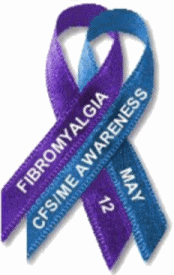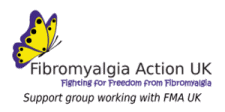|
|
|
Fibromyalgia (F.M.)
Fibro = Fibrous tissue my = muscle algia = pain
Fibromyalgia is a chronic condition of widespread pain and profound fatigue. The pain tends to be felt as diffuse aching or burning, often described as head to toe. It may be worse at some times than at others. It may also change location, usually becoming more severe in parts of the body that are used most. The fatigue ranges from feeling tired, to the exhaustion of a flu-like illness. It may come and go and people can suddenly feel drained of all energy – as if someone just “pulled the plug”.
Symptoms vary from sufferer to sufferer, and besides pain and fatigue, can include:
Poor quality sleep: Fibromyalgia can affect your sleep. You may find you often wake up tired even when you have had plenty of sleep. This is because Fibromyalgia can sometimes prevent you from sleeping deeply enough to refresh you properly. You may hear this described as ‘non-restorative sleep’.
Cognitive problems ('Fibro-fog'): are problems with mental processes, such as thinking and learning. If you have Fibromyalgia, you may have:
Headaches: If you have pain and stiffness in your neck and shoulders from Fibromyalgia, you may also have frequent headaches. These can vary from being mild headaches to severe migraines, which may also involve other symptoms, such as nausea.
Other symptoms of Fibromyalgia can include:
It is believed that Fibromyalgia often develops after some sort of trauma that seems to act as a trigger, such as a fall or car accident, a viral infection, childbirth, an operation or an emotional event. Sometimes the condition begins without any obvious trigger.
The actual cause of Fibromyalgia has not yet been found. Over the past several years, however, research has produced some insights into this puzzling condition. For instance, it has been known that most people with Fibromyalgia are deprived of deep restorative sleep. Current studies may find out how to improve the quality of sleep and some of the prescribed medicine is specifically aimed at addressing the lack of restorative sleep.
Research has identified a deficiency in Serotonin in the central nervous system coupled with a threefold increase in the neurotransmitter substance P, found in spinal fluid and which transmits pain signals. The effect is disordered sensory processing. The brain registers pain when others might experience a slight ache or stiffness. It is hoped that more research will discover the cause and result in more effective treatment.
The best way to cope with Fibromyalgia is to use a number of techniques that ease the symptoms as much as possible:
Foggy's: Dashboard advice for Fibromyalgia and why using a Blue Badge
|










